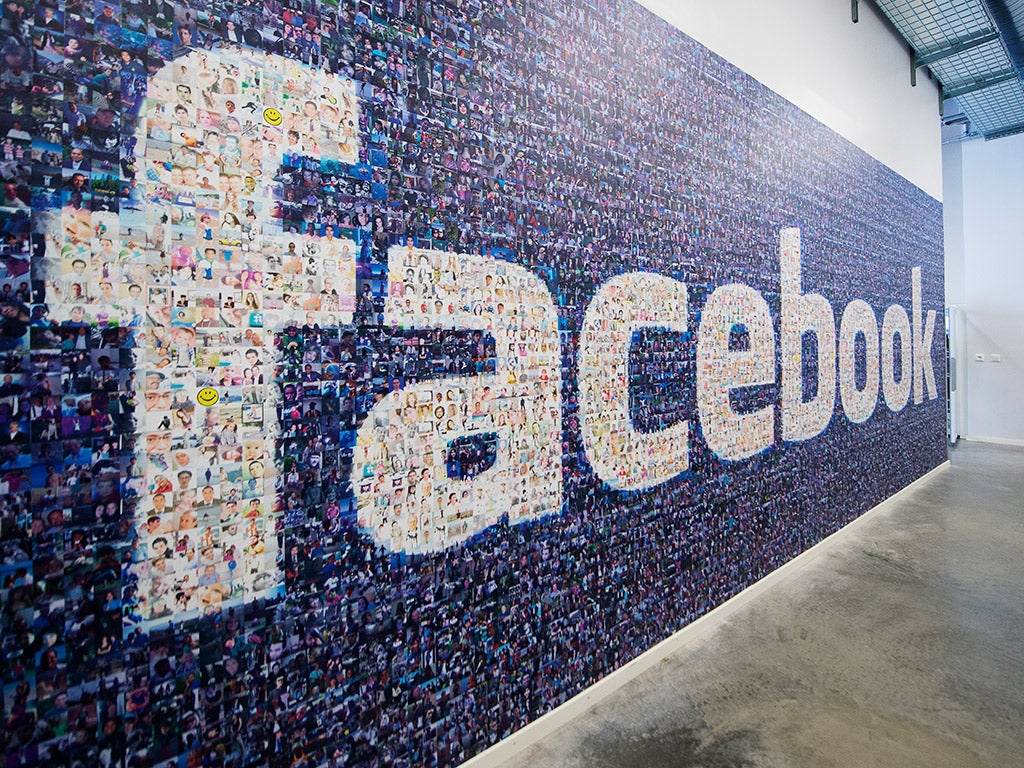Facebook to tweak ‘real name’ policy after backlash from LGBT groups and Native Americans
Campaigners claim that requirement to use authentic names puts people at risk – but Facebook says that linking people’s accounts to their identity stops harassment and abuse on the network

Your support helps us to tell the story
From reproductive rights to climate change to Big Tech, The Independent is on the ground when the story is developing. Whether it's investigating the financials of Elon Musk's pro-Trump PAC or producing our latest documentary, 'The A Word', which shines a light on the American women fighting for reproductive rights, we know how important it is to parse out the facts from the messaging.
At such a critical moment in US history, we need reporters on the ground. Your donation allows us to keep sending journalists to speak to both sides of the story.
The Independent is trusted by Americans across the entire political spectrum. And unlike many other quality news outlets, we choose not to lock Americans out of our reporting and analysis with paywalls. We believe quality journalism should be available to everyone, paid for by those who can afford it.
Your support makes all the difference.Facebook is to change its “real name” policy, allowing people to more easily prove who they are – but not getting rid of it entirely.
Since its beginning, the social network has required its users to sign up with their real name, forcing people to send over their government ID if their identity was in doubt. But the policy has drawn criticism from transgender campaigners, LGBT activists and Native Americans, among others, many of whom have said that requiring their real name puts them in danger.
Now a spokesperson for the site has responded to those criticisms, promising that it will tweak how the policy is applied. But it will not get rid of the rule, since it helps keep people safe from abuse, Facebook claims.
Facebook’s Alex Schultz, who is part of the team that works to set Facebook’s real name policy, responded to an open letter requesting that the site get rid of its policy, or make the process more transparent.
Mr Schultz said that it would continue to “require people to use the name on Facebook that their friends and family know them by”. That policy makes people “accountable for what they say”, Facebook said, since they can’t hire behind anonymity to “harass, bully, spam or scam someone else”.
But it said that it would implement new changes to make the process of proving that names are authentic more transparent and easy.
The site will now let users give more information about their circumstances to its team. That would not mean that users can have different names, it said, but will allow people to understand the reasons they can’t confirm their identity, “informing potential changes we make in the future”.
The site will no longer require government ID. Instead, users will be able to verify their identity with “many forms of non-legal identification”, such as bills or a library card.
Campaigners had said that requiring a government ID could cause problems for transgender people and those that were not using their legal name as a way of keeping themselves from harm.
Mr Schultz also responded to criticism that its system for reporting people with fake names could be abused. Many on the site have reported having their accounts shut down after opponenets reported to Facebook that they were posting under a different name.
The site will now build a new version of the tool used to report such accounts, it said. That new system will ask people to give information about why they are reporting a profile and presumably allow the team to better judge whether an account should be shut down.
In October, a group of 75 activists groups – including human and digital rights advocates and LGBTQ campaigners – wrote an open letter to Facebook, criticising its real name policy and demanding that the site shift towards “allowing pseudonyms and non-legal names on its site in appropriate circumstances”.
The coalition also asked the site to change the way that it makes people confirm their identities. At the moment, users have to submit a government ID to prove who they are – but the “Nameless Coalition” asked that the site make an easier process, as well as being more transparent about how the process is run and providing a proper appeals process for if it goes wrong.
The coalition said that it “believe[s] Facebook should get rid of its real names policy altogether”, in part because it claims the requirement violates European data protection laws. But it recognised that the other demands would make it easier for people in the short-term.
Join our commenting forum
Join thought-provoking conversations, follow other Independent readers and see their replies
Comments